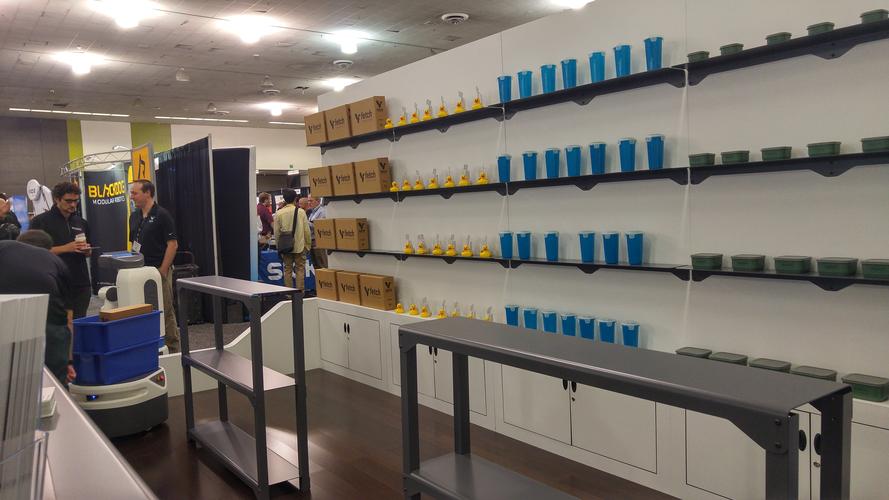Hotel Robotics: Three Years of Losses Totaling Over RMB 8 Billion
 summary:
Hotel Robotics suffered significant losses totaling over RMB 8 billion over three years. T...
summary:
Hotel Robotics suffered significant losses totaling over RMB 8 billion over three years. T... Hotel Robotics suffered significant losses totaling over RMB 8 billion over three years. The company has struggled financially despite investing in robotics technology for hotels.
Title: The Rise and Challenges of Hotel Robotics: A Look into Three Years of Losses
In the fast-paced world of technology and innovation, hotel robots have emerged as a prominent trend in the hotel industry. With the promise of enhanced efficiency, customer experience, and cost reduction, hotel robots have been widely adopted by hotels across the globe. However, a recent report reveals that the hotel robotics industry has suffered significant losses over the past three years, totaling over RMB 8 billion.
The increasing popularity of hotel robots is not without reason. These robots are designed to perform various tasks, including room service, guest check-in/check-out, security, and even concierge duties. They offer a convenient and efficient alternative to human staff, especially in areas where labor costs are high or labor shortages are prevalent. Furthermore, robots can provide a unique and memorable experience for guests, enhancing their overall satisfaction with the hotel.
Despite these advantages, however, the hotel robotics industry has encountered numerous challenges. One of the main reasons for the losses is the high cost of developing and manufacturing these robots. The initial investment in research and development, as well as production costs, can be significant. Additionally, hotels need to invest in infrastructure to support the robots, such as software and hardware integration, which further adds to the cost.
Another challenge facing the hotel robotics industry is the lack of standardization. With various manufacturers and technologies in the market, there is no统一的标准或规范,这导致了互操作性和兼容性问题,使得酒店难以选择合适的机器人解决方案。 different robots may require different maintenance and repair services, which can be costly and time-consuming.
Moreover, the hotel industry is highly competitive, and hotels need to offer a high level of service quality to attract and retain customers. While robots may enhance certain aspects of the guest experience, they may not be able to replicate the personal touch and emotional intelligence that human staff can provide. This can affect customer satisfaction and the hotel's reputation.
Despite these challenges, many hotels continue to invest in robotics as they see the potential benefits in terms of efficiency, cost reduction, and customer experience. However, it is important for hotels to carefully evaluate their needs and choose the right robot solutions that fit their specific requirements. Additionally, they need to work closely with manufacturers and technology providers to ensure that the robots are reliable, efficient, and easy to use.
To address the losses incurred by the hotel robotics industry, several strategies can be considered. Firstly, manufacturers need to focus on reducing the cost of production by optimizing their manufacturing processes and improving efficiency. Secondly, hotels should prioritize user-friendly designs that are easy to integrate into their existing operations. Thirdly, collaboration between hotels and technology providers is crucial to ensure that robots are tailored to specific needs and challenges faced by hotels.
In conclusion, while hotel robots offer significant potential for enhancing efficiency and customer experience, the industry faces numerous challenges that need to be addressed. By working closely with manufacturers and technology providers, hotels can find ways to overcome these challenges and make robotics a successful part of their operations. With continued innovation and improvements in technology, the hotel robotics industry has a bright future ahead.

